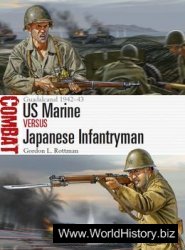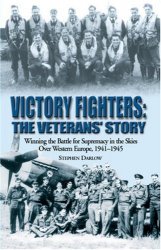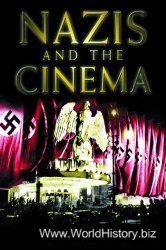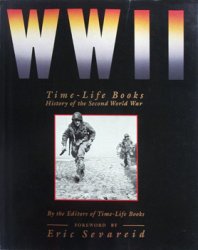In the first three decades of the 20th century, the United States witnessed the beginning of what historian Arthur M. Schlesinger, Jr., called “the imperial presidency.” The president and the executive branch took the lead in setting American domestic and foreign policy as part of an unprecedented expansion of the federal government. Administrations incorporated and exercised new and significant powers in regulating the economy, employing armed forces in the world, and enlarging the agenda-setting role of the presidency. With the exception of the Lincoln administration during the Civil War, presidents had been relatively weak players in government. Compared to most of their 19th-century counterparts, whose powers consisted of federal patronage appointments in the postal service and customs house and governing the machinery of defense and diplomacy, early 20th-century presidents were known for their expansion of presidential power. They negotiated treaties among hostile powers, pushed reform legislation through Congress, instituted new forms of national surveillance and law enforcement, and participated in military action throughout the world. By these initiatives, Presidents Theodore Roosevelt, William Howard Taft,
Woodrow Wilson, Warren G. Harding, and Calvin Coolidge reinvented the office. They collectively reshaped the Supreme Court, asserted new direction over federal legislation, and enlarged the administrative and police functions of the central government. While the power of the executive branch was not uncontested in these years, what Teddy Roosevelt called the “bully pulpit” of the presidency offered ample power to influence politics and public opinion not only on national issues but on regional ones as well, including local conflicts and legal cases that took on national importance.
The emergence of the United States as a world power after the Spanish-American War significantly contributed to the powers of the executive branch. Territorial possessions in Puerto Rico and the Philippines both supported and required an expanded military and diplomatic service, and presidents learned to use the sea power of the United States as a means of bolstering American interests in Asia, as shown in the so-called Great White Fleet of 1907. Closer to home, American presidents regularly intervened in the internal affairs of Caribbean and Central American countries, since the Western Hemisphere was seen as fully within the American sphere of influence. While the United States asserted special claims and interests in Latin America as early as the Monroe Doctrine, it was only when the nation became economically and politically powerful that its claims had any validity.
Individual presidents bear much of the responsibility and credit for building the power and prestige of the American presidency. Theodore Roosevelt, who became president after William McKinley was assassinated, was an innovator in his expansion of the power and visibility of the presidential office. Not only was Roosevelt involved in pushing the United States into expanding the military and its involvement in the international arena, breaking with a more isolationist tradition that dated to the founding of the country, but he helped negotiate the end of the Russo-Japanese War, for which he won the Nobel Peace Prize. He also played a major role in developing the Panama Canal. Domestically, President Roosevelt directed the Justice Department to take on corporate monopolies in antitrust cases, reshaped labor relations in the Anthracite Coal Strike of 1902, and shepherded several regulatory laws through Congress.
President Woodrow Wilson similarly expanded the engagement and impact of the federal government in daily life. In particular, after he declared war on Germany in 1917, the federal government took on new tasks of investigating and keeping tabs on supposed radicals, immigrants, and labor unionists. In the name of domestic security, President Wilson gave authority to the newly created Bureau of Investigation (later the Federal Bureau of Investigation) and U. S. Military Intelligence to conduct surveillance on, investigate, and sometimes assist in the arrest of resident aliens, political radicals, and civil rights and peace advocates. Further, to quiet domestic dissent, the Committee eor Public Ineormation produced propaganda campaigns in support of the war effort. World War I brought other expanded powers to the federal government in the form of postal censorship, mobilization of labor and community resources, and strike mediation. Such agencies as the Fuel Administration and the War Industries Board had new powers to regulate national resources; and for the first time ever, the War Revenue Act instituted a national income tax under the control of the executive branch. President Wilson’s role in the peace negotiations at Versailles and his leadership in organizing the League oe Nations marked a temporary high-water mark for the imperial presidency. Congress rejected both the Versailles Treaty and the League of Nations, actions that signaled a backlash against strong presidential leadership in foreign affairs and the strength of isolationism in public opinion.
Calling for a “return to normalcy,” President Warren G. Harding pursued a modest agenda for change during his time in office. Most of the governmental agencies created during the wartime crisis were abolished, and the federal budget was significantly cut. Developing a new budgetary process, negotiating naval arms reductions in the Washington Coneerence on Naval Disarmament, and reducing federal taxes and the national debt captured most of Harding’s energies in his short time in office. Only veterans’ advocates were able to successfully increase their share of the federal budget. At the same time, federal intervention in the Railroad Shopmen’s Strike, the establishment of a Federal Bureau of Investigation, whose primary tasks including surveillance of criminals and political radicals, and the institution of Prohibition revealed an increasingly powerful role for the executive branch in law enforcement.
Harding’s successor, Calvin Coolidge, held a similarly limited view of the powers and limitations of the presidential office. His administration focused on economic issues, promoting eoreign trade (see trade, eoreign), reducing federal taxes, and tending to international affairs, such as the Kellogg-Briand Treaty and the Dawes Plan. While there was robust growth in most sectors of the economy, agriculture was in crisis during the 1920s, and the continued weakness of mining and textiles contributed to economic instability, which the presidency largely ignored. By the mid-1920s, there already were signs of the economic downturn that led to the Great Depression. Neither Coolidge nor his successor, Herbert Hoover, grasped that the presidency’s refusal to act in the face of economic troubles might have contributed to the emerging economic crisis.
See also elections; politics.
Further reading: Lewis L. Gould, The Modern American Presidency (Lawrence: University of Kansas Press, 2003); John Kentleton, President and Nation: The Making of Modern America (New York: Palgrave Macmillan, 2002); Sidney M. Milkis and Michael Nelson, The American Presidency: Origins and Development, 1776-2002, 4th ed. (Washington, D. C.: Congressional Quarterly Press, 2003).




 World History
World History









